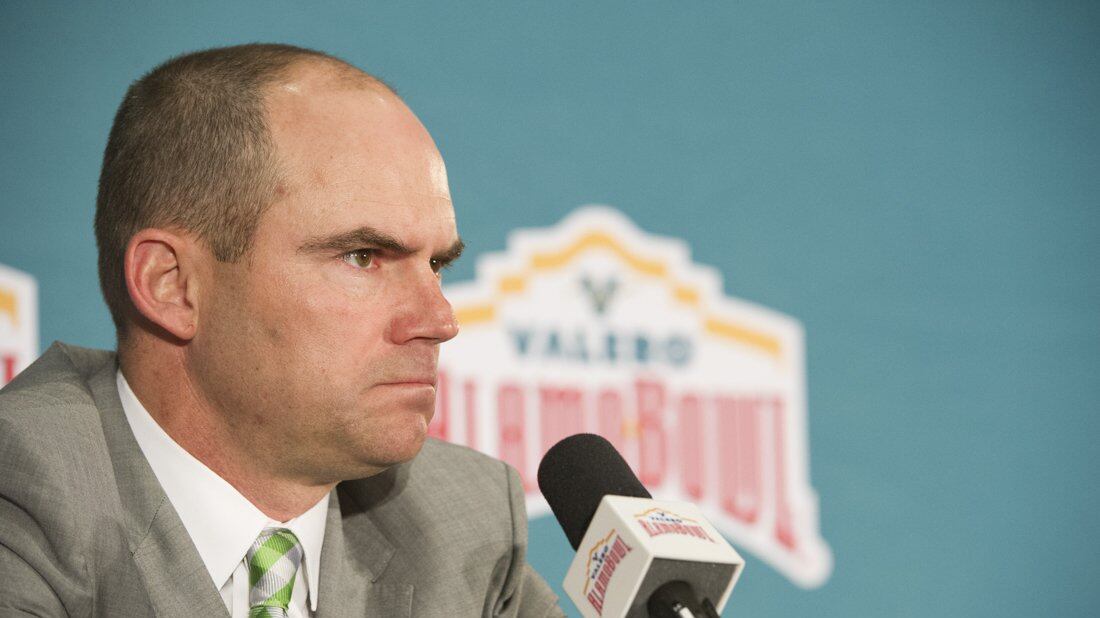The University of Oregon's head football coach, Mark Helfrich, is expected to meet with his boss, Athletic Director Rob Mullens, for a come-to-Jesus conversation tomorrow.
The Duck faithful, judging by social media traffic and the high level of disappointment at sites such as Addicted to Quack, a barometer of fan passion, seem to expect that Helfrich, 43, will be fired after a 4-8 season.
What a difference a year makes. A little over a year ago, Helfrich was regarded as a genius after leading the Ducks to the national championship game (they lost to Ohio State). Mullens scurried to sign Helfrich to five-year contract extension.
But the Ducks were horrible this year. Actually ,4-8 overstates their achievements on the field. Only one of those wins came against a team with a winning record (Utah). Two early season opponents—the University of California-Davis and the University of Virginia—were total cupcakes.
Perhaps more important than 4-8 is another number: 79. That's the age that Ducks' patron and Nike co-founder Phil Knight will turn in February. Knight is said to want a national championship before he dies and given his net worth—Forbes pegs it at $24 billion—eating the remainder of Helfrich's contract would barely register.
Helfrich's contract requires the U of O to pay him through 2019 if he's fired. Here's the schedule for his base salary:

He's currently in year two but his paycheck is only part of his compensation. His contract also provides for two cars; memberships at the Eugene Country Club; the Downtown Athletic Club; a skybox and 12 tickets for each home football game; four tickets to each non-football sporting event and a Nike Elite membership (lots of brightly-colored clothes) and travel expenses for his wife to attend road games.
Helfrich is also eligible for the package of healthcare and pension benefits all public employees receive—and an additional $550,000 a year in life insurance and additional deferred compensation benefits.
The foregoing are all standard—Helfrich gets them guaranteed. Should the team perform well and should the players do well in their classes, he would get paid even more:

He can also earn an extra $100,000 a year if the university meets an NCAA benchmark for academic progress—and yet another $100,000 a year for meeting grade-point-average goals, not to mention an unspecified amount for running summer football camps.

